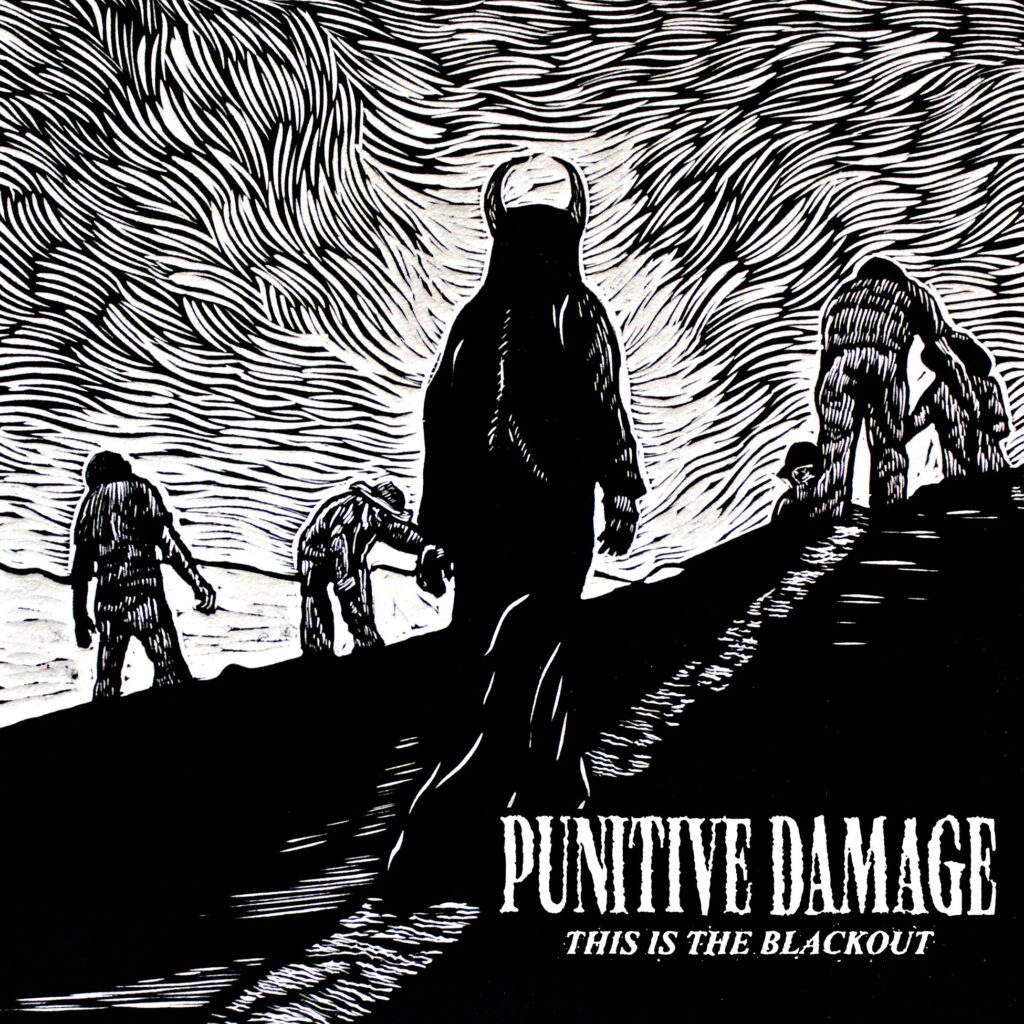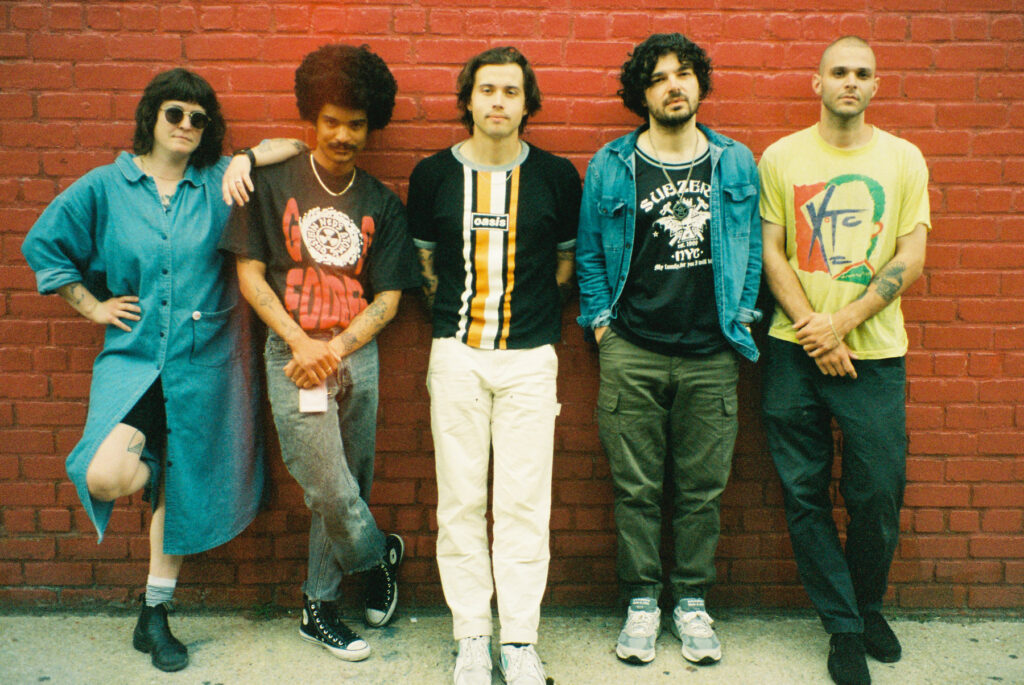Punitive Damage’s debut LP, This Is The Blackout, is a 13-song, 18-minute blast of hardcore that truly taps into one of genre’s most key ingredients: rage. The Pacific Northwest up-and-comers bring a unique worldview that lends palpable urgency to their undeniably intense sound, creating a direct connection between the songs and real life stakes. “A lot of hardcore stuff tends to have some trite bullshit about ‘my brotherhood’ or ‘don’t disrespect me,’ but those things just aren’t super relevant to me,” explains vocalist Jerkova. “I wanted to try and really zero in on the things that have impacted me and painted my lens, so I wrote a lot about what I saw and felt as the daughter of immigrants, and the resulting isolation, friction, and disapproval that came from being Mexican in a country with little next to no Mexican or Latin American community.” The result is hardcore at its best–a record that manages to be as deeply lived in and personal as it is unrelenting and aggressive.
Formed in 2018 by Jerkova, guitarist Czecho, drummer Alejandro, bassist Kermit (with the lineup currently rounded out by guitarist Teej), Punitive Damage wasted no time in making a name for themselves in the Pacific Northwest’s hardcore scene. The band’s demo and early EPs laid the groundwork with a particularly feral strain of hardcore that draws on the more unhinged side of early youth crew and the blisteringly fast tempos of powerviolence. When it came time to record their debut full-length, the group teamed with producer/engineer Taylor Young (Regional Justice Center, Drain, God’s Hate) to maintain that energy, while also stepping in some unexpected directions. “We wanted to explore some different things sonically,” explains Jerkova, “like tapping into the sounds we loved when we were younger. We all came to hardcore from punk but also straight up rock–Alejandro is a huge Springsteen fan, Czecho loves AC/DC and The Rolling Stones, I grew up on Mariachis, Elvis, and KISS–I think we wanted to pull those influences in while still making a hardcore record.”
This Is The Blackout manages to blend moments of rock and roll swagger into the context of an unabashed hardcore album. Tracks like “Nothing” or “Fool” channel hardcore fury with a clear punk bent, and as the album progresses songs like “Big Man” or “Bottom Feeder” throw in riffs that wouldn’t sound out of place on an MC5 record (maybe just played twice as fast). Through it all, the sheer vitriol in Jerkova’s roaring vocals plants Punitive Damage’s sound firmly in the realm of hardcore–even in instances where the tempo slows to more punishing speeds or a flash of piano peeks through the distortion.
Jerkova’s delivery melds with her lyrics, making the entire record feel like a powder keg ready to explode. “While we’re seeing a lot of very overt white supremacist rhetoric today, that strong undercurrent of racism has always existed in cities like Vancouver, and in Canada as a whole. I just never had the luxury to deny its existence,” she explains. “It’s sort of this forced homogenized thing—people wanting you to speak English, straighten your hair…They always want to find a reason to make you feel less-than.” Throughout This Is The Blackout, Jerkova pushes back on this cultural marginalization, directly incorporating her heritage into Punitive Damage’s songs. On opener “Pure Bloods / This Is The Sixth Sunrise,” she references the Nahua creation story and its parallels to now: a moment of cataclysmic change that isn’t the end times, but instead the start of something new and better. “You learn so much of this just as a Mexican kid growing up,” she says. “You get really tired of people trying to force you to assimilate into a culture that’s never going to accept you to begin with.”
Elsewhere tracks like “Race To The Grave,” “Big Man,” and “Legacy” take aim at the institutional rot and waste that kneecaps even a system claiming to be socially progressive, while the blistering 43-second “Nothing” is a lament against becoming complacent with age. On the late album standout “¿Que? ¿Me Tienes Miedo Ahora?”, Jerkova interpolates the story of Diana, Hunter of Bus Drivers, a woman in the U.S./Mexican border city of Juarez who killed the men responsible for ferrying other women to factories where they would face violence, sexual abuse, and often death. The song directly quotes a letter she sent to police explaining her motivations and condemning their inaction and complicity. The music’s mid-tempo stomp combines with the lyrical narrative to create one of the most intense tracks on the album, and is made even more visceral by Jerkova singing in Spanish. “My whole life until recently I was actively and persistently discouraged from speaking Spanish,” she says. “I can’t count how many times strangers butted themselves into my conversations to yell ‘go back to Mexico,’ or some other bullshit. And as a result, I’ve reached a point where if speaking another language is going to piss those people off, I’m going to do it as much as I can–and I won’t be sorry about it.”
But despite all of the darkness and frustration throughout This Is The Blackout, at the album’s core there’s a desire to see a better world, and a drive to get there. The record closes with its title track, its final moments of feedback ringing out like a question mark that asks where you stand, and what you’re willing to do. “In spite of all this horrendous shit, I think there’s been a shift in response,” says Jerkova, citing the grassroots efforts that spring up in the face of overwhelming corruption and government ineffectiveness. “We’re starting to see people on the ground level reaching their limit, people are wanting to take things into their own hands and find a way to take care of things because no one else will. There are people in charge who want to see themselves as untouchable, or gods who lord above us, but when I get overwhelmed or in doubt about the state of the world, I think about how there’s so many of us and so few of them.”






